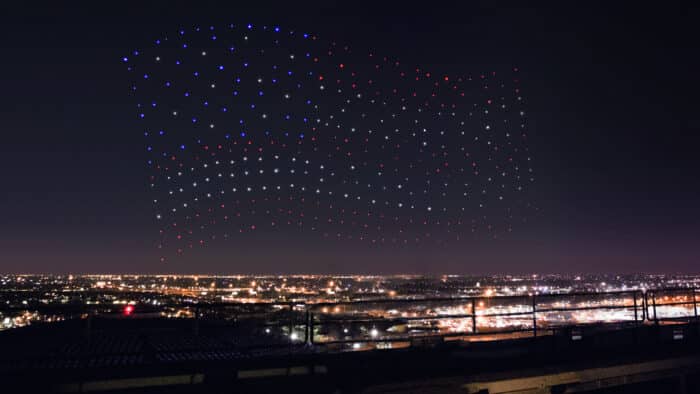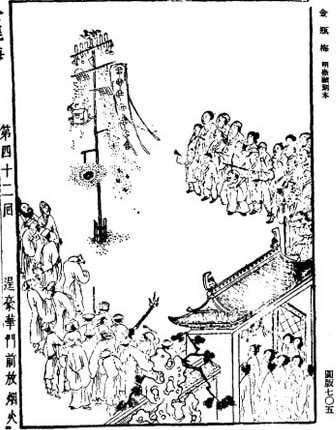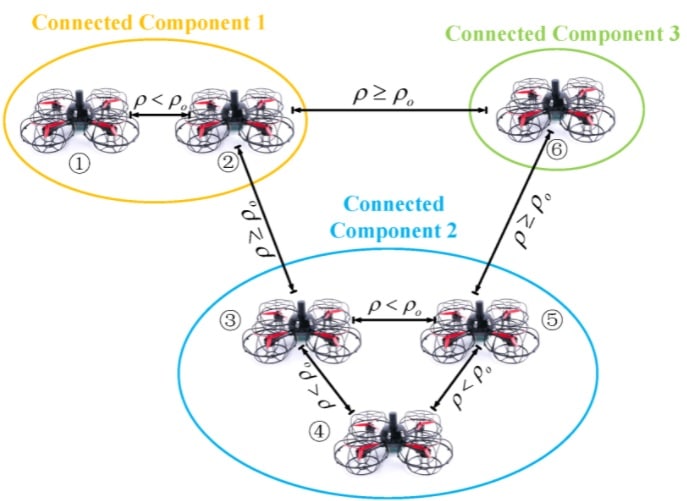Boom! You hear the mortar launch and in mere moments the sky is lit up with a plethora of color and even touches of magic.
Lovers might embrace, a hand grazing to the small of some loved one’s back as shards of spent pyrotechnic stars float down to the earth as their lips meet.
Wide-eyed children stare up, jaws agape and pupils dilated with excitement at a display so extraordinary. Fireworks have always, for centuries, held a special celebratory place in the heart of humans.
But the romanticized version of these displays has not been without its controversy. From noise and safety issues to its expense and also its unique heavy chemical pollutant aspects, fireworks for many have been approached with caution. This is changing, and fast.
In February 2017 pop superstar Lady Gaga was chosen to perform at the Super Bowl LI Halftime show, a global event that happened just after a highly contentious election in America.
National patriotism was at a key point, as some licked their wounds and others celebrated a new figurehead in American politics. Change was happening. And the red, white and blue flag of America had also changed.

Behind Gaga it was 300 light drones flying in formation to emulate the American flag, waving in a new era of light displays.
The display reached a vast global audience, and soon the hands of change ushered a cultural reset for age-old traditions on the way celebrations like New Year’s Eve lighting displays take place.
A Star is Born
According to Intel Corporation, now the world leader in drone light shows, Lady Gaga’s performance in 2017 carried significant weight for the advancement of drone technology and its different uses.
Three hundred Intel Shooting Star drones were used in the performance, each choreographed to deliver an unthinkable aerial performance which was to be the first-ever drone integration during a televised event.
Lady Gaga’s performance began with Intel Shooting Star drones as the backdrop of colorful twinkling lights, easy to be confused with stars. These eventually transformed into red and blue moving stars, before creating the American Flag before Lady Gaga’s dramatic entrance into the stadium for her performance.
Just Dance
The 300 Intel Shooting Star drones that lit up the sky in a choreographed aerial show in 2017 was the start of what is now, in 2021, being perfected. Here are some fascinating facts about the drone’s first major appearance in the world of entertainment.

1 Intel Shooting Star drones are designed specifically for light shows. They weigh 280 grams.
2 The drones are chameleons that feature built-in LED lights that can create 4 billion color combinations.
3 The drones are constructed with a soft frame of flexible plastic and foam and they contain no screws.
4 All 300 drones were controlled by one computer and one drone pilot.
5 There was a second pilot on standby.
The 2017 performance was the highest the Intel Shooting Star drones had flown up to that point in time. Intel received a special waiver to fly the fleet up to 700 feet on the night. Intel also received an additional special waiver to fly their drones in more restrictive airspace on the night.
Perfect Illusion
But before this groundbreaking lighting display, fireworks have been the norm.
Ancient China was the first culture to truly use fireworks outside of battle. Author Lihong Liu believes as early as the Zhou dynasty (1046-256 BCE) burning of the yard ceremonies created the first way for people to have a connection with the night, and brighten the dark skies.

In Pyrotechnic Profusion: Fireworks, Spectacles, and Automata in Time by Lui the argument is that by the Han dynasty in China (206 BCE-220 CE) bonfires became mega spectacles for celebrations like the new year, as the fires inaugurated a healthy and auspicious year ahead.
This celebration was made even more of a spectacle during the Tang dynasty (618-907) when Li Tian (born in 621) invented the “shattering bamboo” (baozhu).
Bamboo shoots were filled with saltpetre and covered in pine oil and led to loud explosions when the bamboo was lit with fire.
More recipes for shattering bamboo developed, but until the advent of gunpowder, fireworks remained mostly on the ground.
To produce effects of blasts or dramatic sparks in the skies, a mix of gunpowder was rolled in paper to create the first firecrackers that were weaved together by fuses.
This led to firecrackers eventually making it into the night sky and becoming incredibly popular.
Born This Way
Fireworks is a sensory experience and one that gives the human body a range of sensations.
According to a 2010 article Indoor Fireworks: The Pleasures of Digital Game Pyrotechnics fireworks evokes certain emotions and feelings to their visual, audio, percussive and olfactory effects.
It is the same emotions humans get from a great work of art and offers humans a disruption in the senses that leads to an effect called Ilinx.
Ilinx among other things creates a loss of stability and also releases a range of hormones in our bodies. In the end, we feel pleasure.
The paper further divulges that humans experience a range of primitive anticipation when a firework is launched, which culminates in a check box getting ticked in our fulfilment mechanism.
Your body experiences the pleasure of fireworks from when you light the fuse up to its eruption, and its effects often linger.
This is one of the many reasons fireworks have so perfectly been incorporated with live events like concerts, sporting events and celebrations – fireworks make humans feel – with pleasure that pours on us like rain.
Bad romance
Now fireworks are getting an overhaul, and they seem to be on the help of very specific research. The particles of traditional fireworks have become under investigation and one study paints a bleak picture. The 2020 research paper Toxicity of particles emitted by fireworks looked at the amount of toxic metals fireworks release into the atmosphere and its results on human health.
This toxicity was measurable and the research concluded that while pyrotechnic fireworks have universal appeal the adverse health effects have thus far almost always looked at physical injuries associated with them.
The release of chemicals that pollute ecology like that of waterways have also been established, but because there has been little research into the particles and gases released during fireworks celebrations its effects on the human cardiopulmonary system has not been under the microscope until now. The research addressed the knowledge gap of the in vitro
and in vivo toxicity of particles released by commonly used fireworks, and also how toxicity increased during specific celebratory events.
According to the researchers, their results suggests that in addition to organic pollutants from fireworks there’s also a large number of toxic metals released during celebration periods. It has an increase of exposure with a high amount of particle matter breathed in by humans. The study also suggests that light shows should move to that of drones or laser displays since there is so much environmental risk associated with fireworks.

Noise pollution has also come under fire, and the Humane Society of the United States has offered a bevvy of resources to keep pets and animals safe during load celebrations.
According to the society many pets are prone to run away during specific celebratory times, and owners have to ensure the animals are protected from loud noises, have identification tags and are also kept calm and cared for.
One of their major concerns is the fact that pets are more sensitive to noise, smells and lights associated with fireworks.
They recommend pets are kept indoors (even outside pets) with devices like a TV or radio the keep out some of the jarring noises. Because pets will be unfamiliar with the noises they can become extremely scared and anxious during firework displays.
In fact, staying home is the ultimate solution, and without a crowd at the show – what would all the pollution be for?
Applause
The 2020 Tokyo Olympics put Intel back in the spotlight following their introduction to light displays with Lady Gaga.
Intel worked closely with the International Olympic Committee (IOC) running up to the games that were held in 2021 to help reimagine the future of the Olympic Games.
The opening ceremony was an event featuring endless light displays, and this time thanks to drones, not the usual fireworks.
Intel previously operated over 1,200 drones at the Olympic Winter Games in 2018, which went down in history as the first drone light show at an Olympic event. Also, the of the biggest live and broadcast event in the world.
The same Shooting Star drones were used and this year was no different when Intel launched 1,824 drones to perform in front of the world during the Olympic Games.
Marry The Night
Drone light shows are now becoming the norm with bigger and better aerial displays lighting up the night skies. In 2020 China broke the record for the most drones to perform in a light show.
According to the Guinness Book of World Records, the record-breaking light show was achieved by Shenzhen Damoda Intelligent Control Technology in Zhuhai where 3,051 Unmanned Aerial Vehicles performed intricate and even unimaginable feats.
Now engineers are at the helm to change the world of celebration to figure out how drones can replace fireworks, and they are laying the groundwork.
A 2021 study by a group of electrical engineers titled On Unmanned Aerial Vehicles Light Show Systems: Algorithms, Software and Hardware gives a taste of what is to come.
With Unmanned aerial vehicle (UAV) light shows (UAV-LS) the emerging technology is coming under more scrutiny because it is a flexible alternative to traditional fireworks that is considered environmentally friendly and more flexible to present animations or specific designs.

The study of swarm control, communication, planning, and software and hardware design is now more popular than ever to change the face of light shows, and marry the night not with blazes of burning metal and powder – but technology.
With keen engineering insight, the authors of the paper were able to establish that UAV-LS system is a dynamic formation transformation algorithm that works optimally in a
conditional-triggering manner, Components for shows are constructed and connected online to achieve optimal flight distances, avoid collisions between drones and perform to its best capabilities.
To build a UAV-LS system for research purposes a wireless transmission subsystem was created and simulations were able to perfectly simulated. These simulations will give way to creating new drones and hardware, creating better energy systems for drones as well as perfecting light and unification between swarm drones.
If you happen to live in a big (and many of the biggest cities in the world are already included) don’t be surprised if your usual fireworks show is an animated masterpiece that takes to the sky. All, in part, thanks to Lady Gaga and the drone engineers at Intel.
References
Intel Corporation, 2017. Intel Drones Light Lady Gaga Performance. [online] Available: https://newsroom.intel.com/news-releases/intel-drones-light-lady-gaga-performance-pepsi-zero-sugar-super-bowl-li-halftime/#gs.gr57ac [Accessed on 20 November]
Liu, Lihong. (2017). Pyrotechnic Profusion: Fireworks, Spectacles, and Automata in Time. Journal18. 10.30610/3.2017.4.
Niedenthal, Simon. (2010). Indoor Fireworks: The Pleasures of Digital Game Pyrotechnics. Eludamos: Journal for Computer Game Culture. 4. 69-83.
Hickey, Christina & Gordon, Christopher & Galdanes, Karen & Blaustein, Martin & Horton, Lori & Chillrud, Steven & Ross, James & Yinon, Lital & Chen, Lung-Chi & Gordon, Terry. (2020). Toxicity of particles emitted by fireworks. Particle and Fibre Toxicology. 17. 10.1186/s12989-020-00360-4.
Humane Society of America, 2016. Fireworks Fourth of July tips. [online] Available at: https://www.humanesociety.org/resources/fireworks-july-fourth-tips [Accessed on 20 November]
Intel Corporation, 2021. Tokyo Olympics Press Kit. [online] Available at: https://www.intel.com/content/www/us/en/newsroom/resources/press-kit-2020-tokyo-olympics.html#gs.gvfv8s [Accessed on 20 November]
Guinness World Records, 2020. 3051 Drones create spectacular record-breaking light show in China. [online] Available at: https://www.guinnessworldrecords.com/news/commercial/2020/10/3051-drones-create-spectacular-record-breaking-light-show-in-china [Accessed on 20 November]
Huang, Jie & Tian, Guoqing & Zhang, Jiancheng & Chen, Yutao. (2021). On Unmanned Aerial Vehicles Light Show Systems: Algorithms, Software and Hardware. Applied Sciences. 11. 7687. 10.3390/app11167687.


